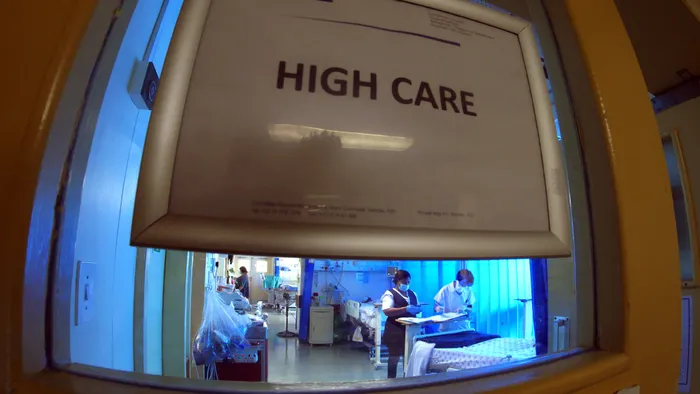A call to address SA’s critical care nursing shortage

While South Africa is facing a critical shortage of ICU beds and skilled staff to man those units, a University of Pretoria professor outlined a transformative vision for the future of critical care,
Image: Ian Landsberg / Independent Newspapers Archives
In highlighting the urgent need for critical care nursing in South Africa, a professor from the University of Pretoria (UP) pointed out that the country only has 62,46 critical care-trained nurses registered with the South African Nursing Council (SANC).
South Africa’s population of 64 million is meanwhile supported by only 4,719 critical care beds. Around 1,186 of these beds are in the public sector and 3,533 in the private sector.
In an inaugural address at the UP, newly appointed Professor Isabel Coetzee-Prinsloo outlined a transformative vision for the future of critical care in South Africa. She presented what she termed the “three pillars of excellence in critical care” – quality education, practice development, and knowledge translation.
Her lecture, delivered at a time when healthcare systems worldwide continue to evolve in the wake of the Covid-19 pandemic, Coetzee-Prinsloo emphasised the indispensable role of specialised critical care nursing.
She said critical care units were nurse-led, and critically ill patients were cared for and managed by highly skilled critical care nurses in collaboration with physicians and intensivists. This lived reality, she said, underscores the urgent need for a structured, multifaceted approach to sustaining and enhancing excellence in the field. For Coetzee-Prinsloo, the effective deployment and continuous development of this specialised workforce is not merely an academic aspiration, but a public health necessity.
Central to her vision is the first pillar, quality education, which she described as a dynamic and essential process. Beyond improving patient care, she said, it forms a critical component of the 2030 Sustainable Development Agenda, linking quality education directly with good health and well-being.
In her view, healthcare providers must cultivate the knowledge, skills and competencies required to deliver the highest standards of compassionate patient care. This involves developing critical care nurse practitioners who combine advanced clinical expertise, sound clinical judgement, and strong interpersonal abilities to manage complex and high-pressure scenarios.
Coetzee-Prinsloo’s scholarly work demonstrates a sustained commitment to this vision. Her research reflects a focus on optimising both teaching methodologies and nurses’ professional experiences. She has also explored the pragmatic challenges of continuous professional development, investigating why nurses may not consistently engage with educational programmes and how these barriers can be addressed to ensure meaningful knowledge acquisition.
The second pillar, practice development, emphasises collaboration and person-centred care, extending beyond technical proficiency to address the moral and emotional complexities inherent in critical care.
At its core lies the relationship between patient, family, and nurse, which she described as “a collaborative partnership built on trust, communication, and mutual respect". Recognising the family as a vital component of care, she highlighted how their involvement provides emotional support, unique insights and a collaborative voice in clinical decision-making.
Coetzee-Prinsloo also underscored the ethical challenges of critical care, referencing research on moral distress among nurses when executing do-not-resuscitate orders, and the experiences of family members in end-of-life care within high-acuity units. Her work reflects a dedication to improving the overall patient and family experience in intensive care settings.
The third pillar, knowledge translation, is the mechanism by which the first two pillars – education and practice – are continually informed by the best available evidence. Coetzee-Prinsloo defines this as “the dynamic process of transferring research evidence into clinical practice to improve patient outcomes".
Her contributions in this area include the development of a conceptual framework for educational design that promotes the transfer of learning from theory to practice. Coetzee-Prinsloo stressed that ensuring excellence in critical care requires integration of quality education, practice development and knowledge translation.
zelda.venter@inl.co.za
Related Topics: